dutree is a free, open-source, fast command-line tool for analyzing disk usage, written in the Rust programming language, which is developed from the combination of durep (disk usage reporter) and tree (list directory content in tree-like format) command-line tools. As a result, dutree reports disk usage in a tree-like format.
dutree displays colored output, depending on the values configured in the GNU LS_COLORS environment variable. This environment variable allows for setting the colors of files based on their extension, permissions, and file type.
dutree Features:
- Show the file system tree.
- Supports aggregating of small files.
- Allows for comparing different directories.
- Supports excluding files or directories.
How to Install dutree in Linux Systems
To install dutree in Linux distributions, you must have rust programming language installed on your system. If you don’t have Rust installed, you can use the following curl command to install it as shown.
$ sudo curl https://sh.rustup.rs -sSf | sh
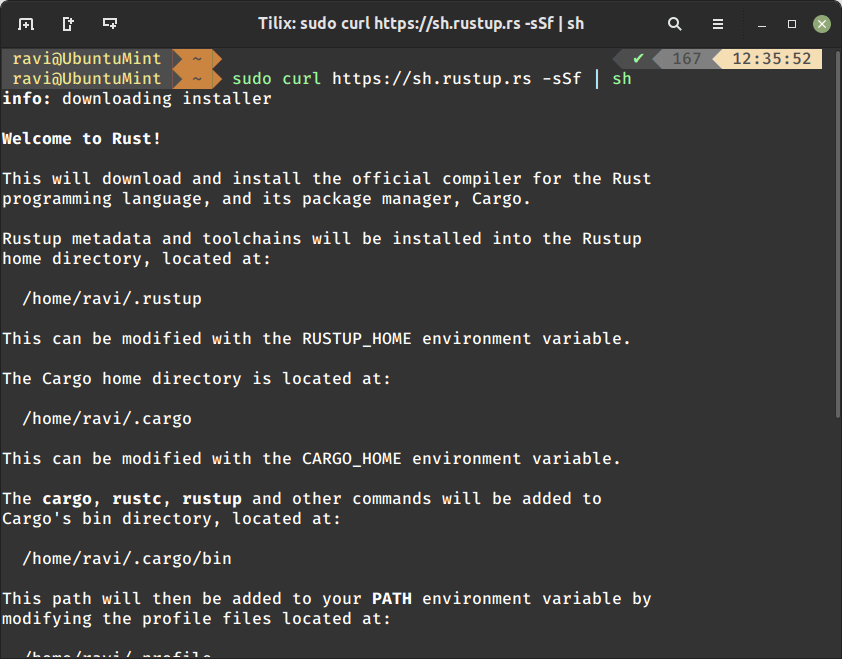
Once Rust is installed, you can run the following command to install dutree in Linux distributions as shown.
$ cargo install --git https://github.com/nachoparker/dutree.git
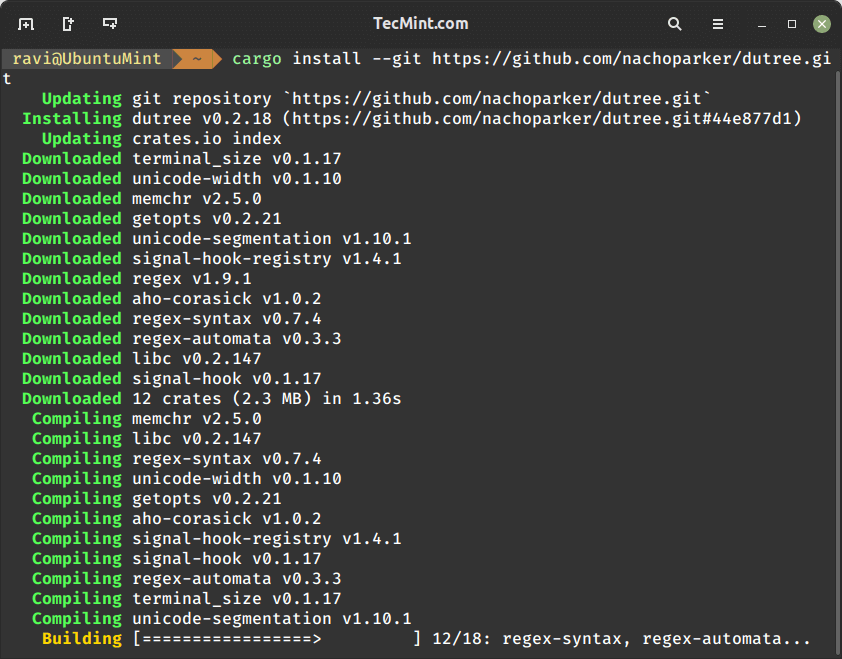
After installing dutree, it uses environment colors according to the variable LS_COLORS, it has the same colors ls –color command that our distro has configured.
$ ls --color
The simplest way of running dutree is without arguments, this way it shows a filesystem tree.
$ dutree
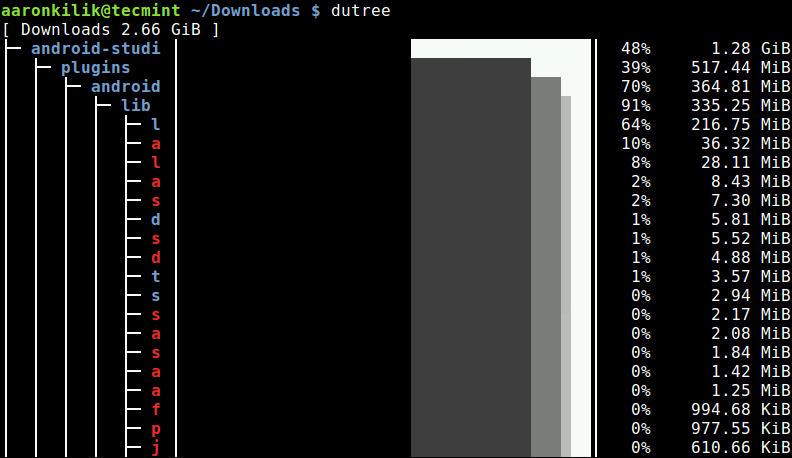
To display real disk usage instead of file size, use the -u flag.
$ dutree -u
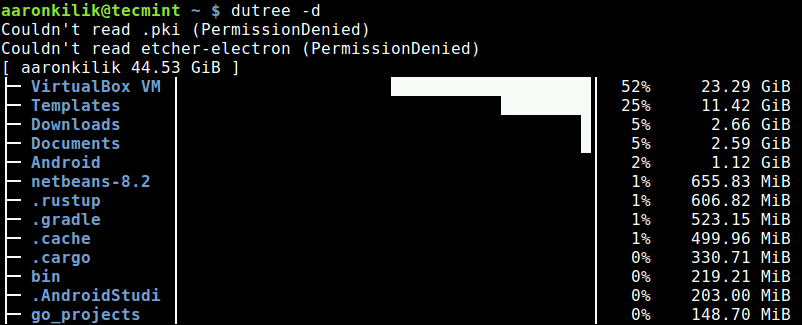
Show Directories in Depth
You can show directories up to a given depth (default 1), using the -d flag. The command below will show directories up to a depth of 3, under the current working directory.
For example if the current working directory (~/), then display the size of ~/*/*/* as shown in the following sample screenshot.
$ dutree -d 3
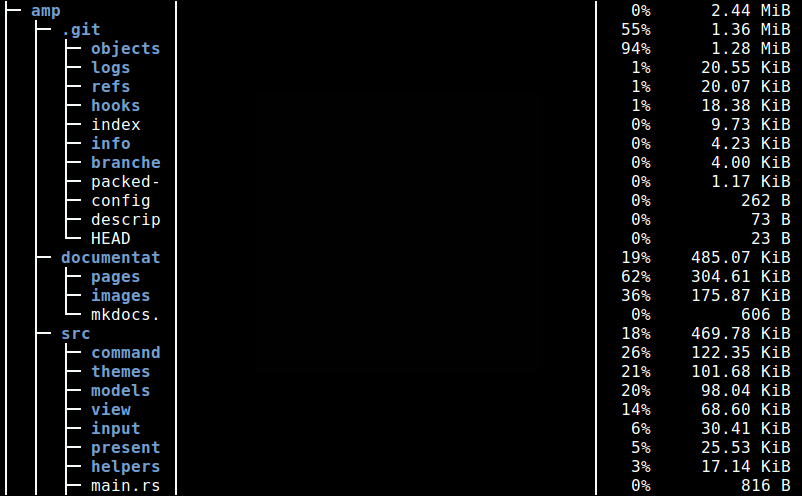
Exclude Files or Directories in Output
To exclude matching a file or directory name, use the -x flag.
$ dutree -x CentOS-7.0-1406-x86_64-DVD.iso
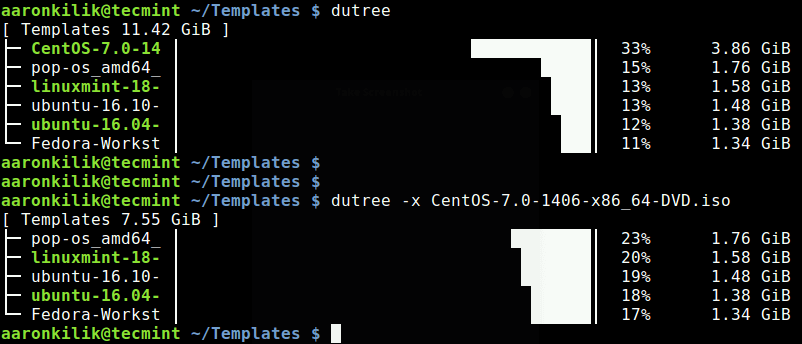
You can also get a quick local overview by skipping directories, using the -f option, like so.
$ dutree -f
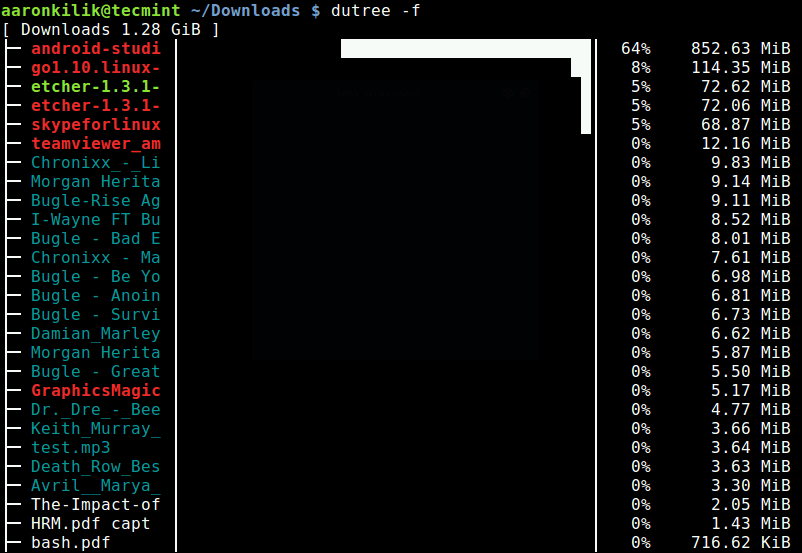
A full summary/overview can be generated using the -s flag as shown.
$ dutree -s
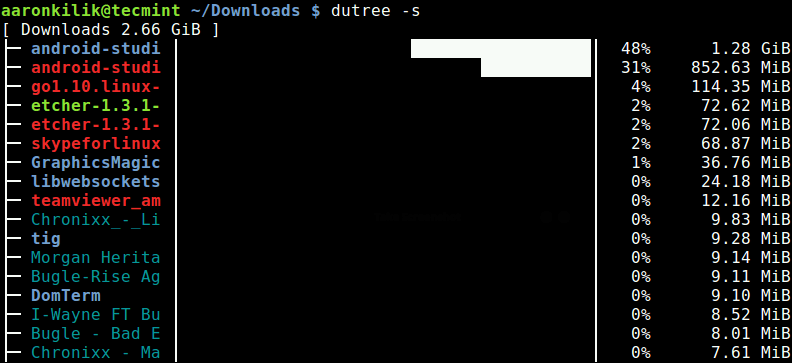
Aggregate Small Files
It is possible to aggregate files smaller than a certain size, default is 1M as shown.
$ dutree -a
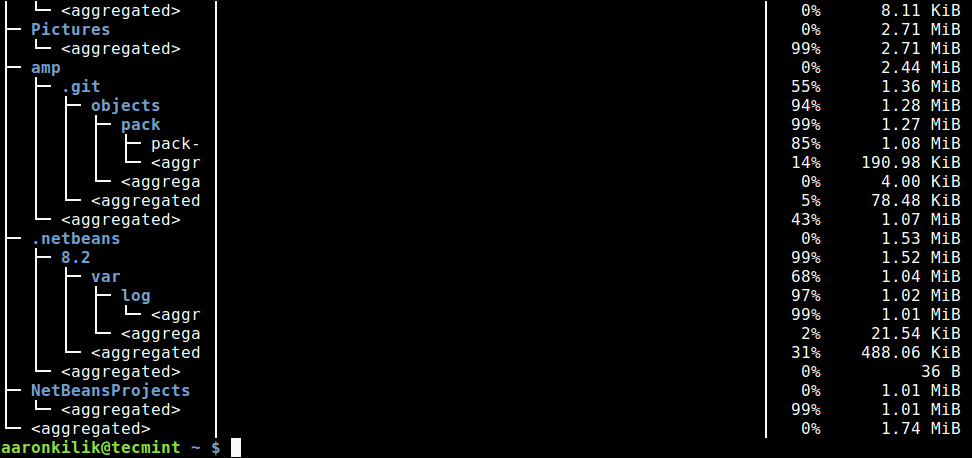
Exclude Hidden Files
The -H switch allows for excluding hidden files in the output.
$ dutree -H
The -b option is used to print sizes in bytes, instead of kilobytes (default).
$ dutree -b
To turn off colors, and only display ASCII characters, use the -A flag like so.
$ dutree -A
You can view the dutree help message using the -h option.
$ dutree -h
Usage: dutree [options] [..]
Options:
-d, --depth [DEPTH] show directories up to depth N (def 1)
-a, --aggr [N[KMG]] aggregate smaller than N B/KiB/MiB/GiB (def 1M)
-s, --summary equivalent to -da, or -d1 -a1M
-u, --usage report real disk usage instead of file size
-b, --bytes print sizes in bytes
-x, --exclude NAME exclude matching files or directories
-H, --no-hidden exclude hidden files
-A, --ascii ASCII characters only, no colors
-h, --help show help
-v, --version print version number
dutree is a simple yet powerful command-line tool to show file size and analyze disk usage in a tree-like format, on Linux systems. Use the comment form below to share your thoughts or queries about it, with us.


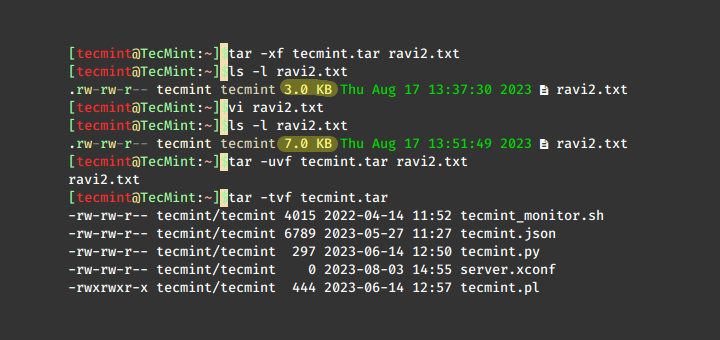

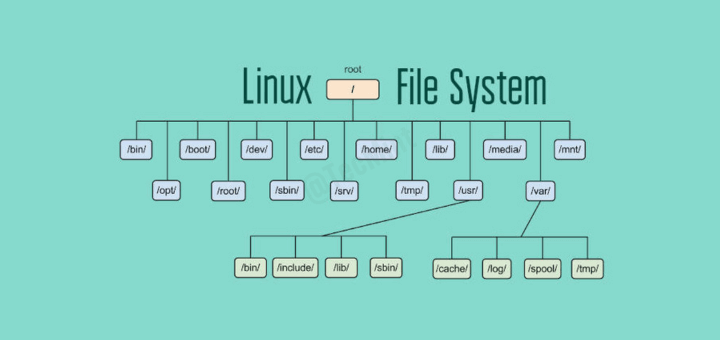

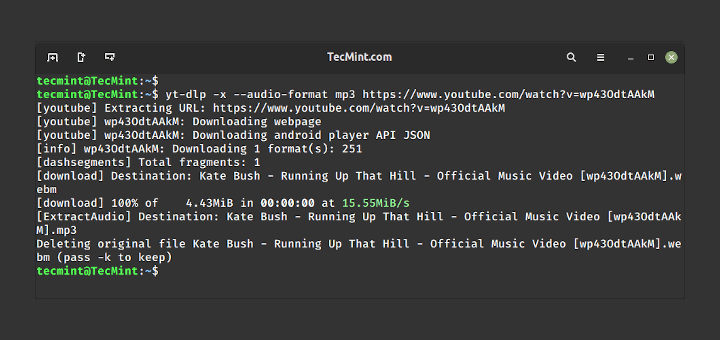
The dutree last release is from 2019. Not a good sign IMHO.
@Grokker,
I agree. The fact that dutree hasn’t been updated in over 4 years is not a good sign. It means that the project is no longer being actively maintained…
I prefer ncdu, which is an NCurses-based du (disk usage) viewer that provides a fast and easy-to-use interface through the famous du utility.
It allows one to browse through the directories and show percentages of disk usage with the ncurses library.
@Abubua,
Thank you for sharing your preference. ncdu is indeed a powerful tool with its NCurses-based interface for the du utility. It’s great to know that you find its interface fast and easy to use.
We already covered about this tool here – Ncdu a NCurses Based Disk Usage Analyzer and Tracker
Looks tempting to use on a local workstation, but for remote ssh sessions the display will not look the same. I recommend “ncdu” in that case since it is most likely already available in one of the common Linux repositories regardless of the flavor.
@Etescartz
Okay, many thanks for sharing your thoughts with us.